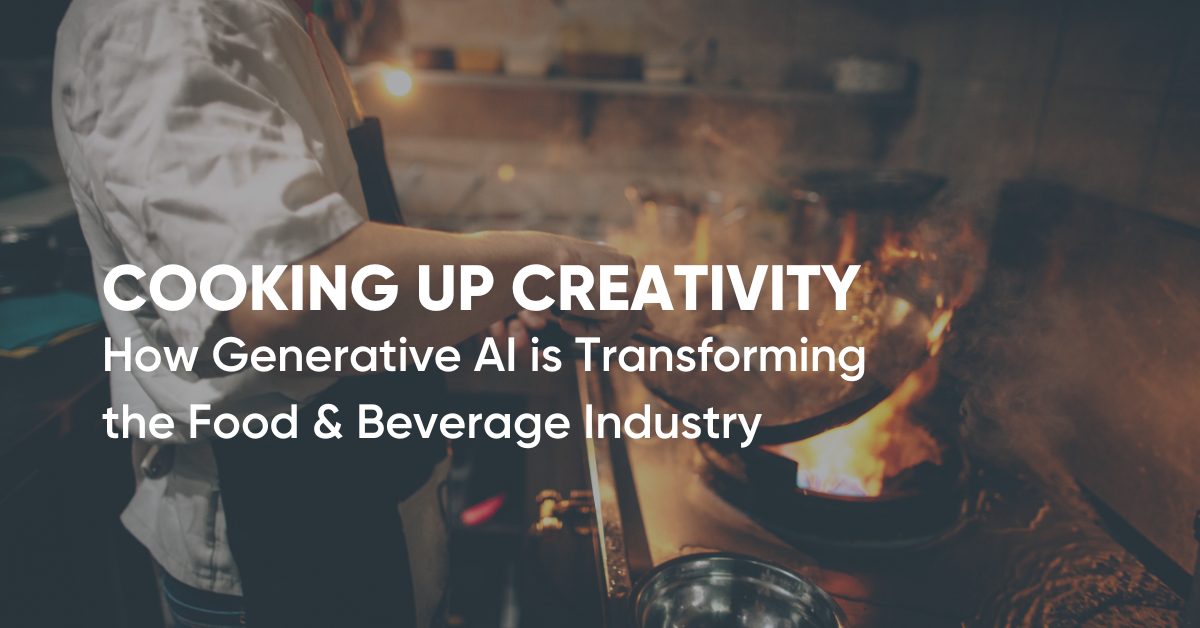What’s the flavor of next season? Lychee? Cardamom? A new pepper varietal? Something else?
The Food and Beverage industry is always evolving, and companies must constantly seek innovative ways to enhance sales, streamline operations, and ultimately boost profits. So how do innovative businesses get ahead?
One cutting-edge technology that has the potential to revolutionize the industry is Generative Artificial Intelligence (AI). Generative AI, a subset of artificial intelligence, involves training models to generate content, whether it’s images, text, or even recipes. (But can they add that all important ingredient, love?) Let’s explore how Food and Beverage companies can harness the power of Generative AI to drive improvements and innovation.
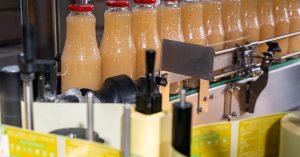
Use Cases of Generative AI in the Food and Beverage Industry
Menu and Recipe Creation
Creating enticing menus and unique recipes is an art that requires a balance of flavors, textures, and aesthetics. Generative AI can assist in this creative process by generating novel recipe ideas based on specific criteria. For instance, a restaurant looking to introduce a new vegetarian dish could use Generative AI to suggest innovative combinations of ingredients and cooking methods, allowing for more rapid testing of new recipes. This not only saves time but also encourages culinary experimentation.
Marketing and Content Generation
It’s not always about the taste, you need to find your audience and let them know what you offer. Engaging content is crucial in today’s digital landscape. Generative AI can aid in generating captivating food descriptions, social media captions, and blog posts. This technology can provide Food and Beverage companies with a constant stream of fresh content ideas, ensuring their online presence remains dynamic and appealing to customers.
Supply Chain Optimization
Don’t you hate it when your favorite coffee shop runs out of your favorite flavoring? The efficient management of the supply chain is vital for the success of Food and Beverage businesses. Generative AI can help forecast demand, optimize inventory levels, and even suggest sourcing strategies based on historical data and market trends. This ensures that ingredients are procured at the right time and in the right quantities, minimizing wastage and reducing costs.
GenAI in Action
McCormick & Company – Flavor Creation: McCormick & Company, a renowned spice and flavorings manufacturer, partnered with IBM to create a product line named “ONE.” This AI-powered platform utilizes Generative AI to develop new and unique flavor combinations. By analyzing an extensive database of recipes, customer preferences, and ingredient profiles, ONE generates innovative seasoning blends that cater to evolving consumer tastes. This innovative approach not only saves time but also taps into consumer trends effectively, giving McCormick a competitive edge.
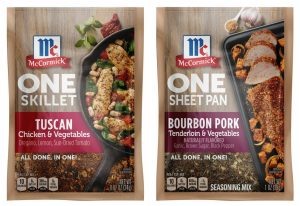
Coca-Cola – Recipe Personalization: Coca-Cola, the global beverage giant, employed Generative AI to personalize the beverage experience for its customers. Through their “Freestyle” soda fountains, which allow users to mix various flavors, Coca-Cola uses AI algorithms to suggest personalized drink combinations based on user preferences. This not only enhances customer satisfaction but also provides valuable data insights into emerging flavor preferences.
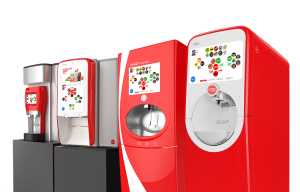

Benefits of Generative AI in the Food and Beverage Industry
Creativity Enhancement
Generative AI encourages creative thinking by suggesting novel combinations and concepts that might not have been explored otherwise. It pushes the boundaries of culinary innovation, leading to the rapid development of unique products that capture consumer interest.
Efficiency and Time Savings
Manual tasks, such as recipe development and content creation, can be time-consuming. Generative AI automates these processes, freeing up valuable time for chefs, marketers, and other professionals to focus on higher-value strategic tasks.For example, a chef can focus on recipe refinement vs. creating dozens of new recipes.
Personalization and Customer Engagement
Personalization is a driving force in modern consumer behavior. Generative AI enables businesses to tailor their offerings to individual preferences, enhancing customer engagement and loyalty.
Data-Driven Insights
AI-powered systems generate vast amounts of data, which can provide invaluable insights into consumer behavior, trends, and market dynamics. This data-driven approach empowers businesses to quickly make informed decisions and adjust their strategies according to real-time information which could take months if done by human analysts.
Risks and Considerations
Loss of Authenticity
While Generative AI can offer valuable suggestions, there’s a risk that relying too heavily on AI-generated content might dilute the authenticity and human touch that customers appreciate in the culinary and hospitality industries.AI can speed the development of new ideas, but it is still important to keep experts in the loop.
Ethical and Cultural Concerns
AI-generated recipes and menu suggestions might inadvertently overlook cultural sensitivities or traditional practices. It’s essential to ensure that the AI’s output aligns with the values and preferences of the target audience.
Dependency on Data Quality
The accuracy and relevance of AI-generated content heavily rely on the quality of the data used for training. Poor-quality or biased data can lead to suboptimal outcomes, although new techniques are helping to reduce this risk.
F&B companies should implement robust governance frameworks, adhere to legal and ethical guidelines, and ensure human oversight to mitigate these risks and maintain consumer trust.
Generative AI has emerged as a powerful tool for Food and Beverage companies to enhance their sales, streamline operations, and boost profits. Through applications like recipe creation, content generation, and supply chain optimization, businesses can tap into the potential of AI to achieve new levels of innovation and efficiency. While challenges exist, with careful consideration and ethical usage, Generative AI can undoubtedly be a game-changer for the industry, propelling it into a future of unparalleled creativity and growth. As we witness the success stories of companies like McCormick & Company and Coca-Cola, it’s evident that embracing AI-driven technologies can lead to not only business success but also a more exciting and dynamic consumer experience.
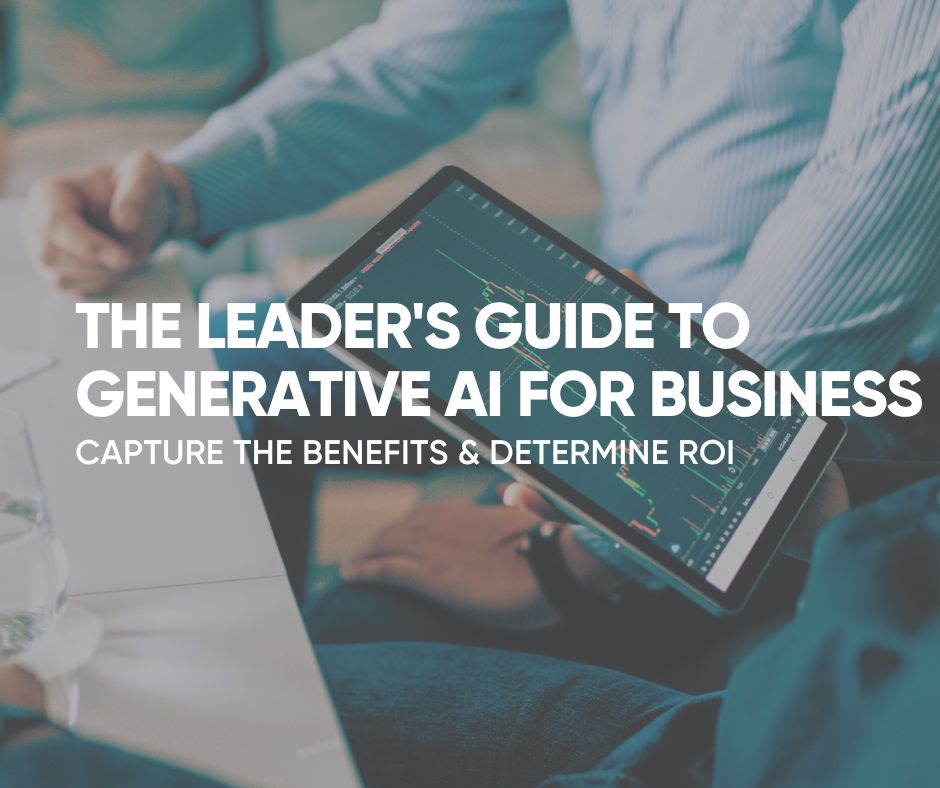
GENERATIVE AI EBOOK
The Leader’s Guide to Generative AI in Business
In “The Leader’s Guide” you will learn about the basics of generative AI, including how it works, the different types of generative AI models, and the benefits for enterprise organizations.
You will also learn about the challenges and opportunities associated with generative AI, and how you can elevate your business with this powerful new technology.

